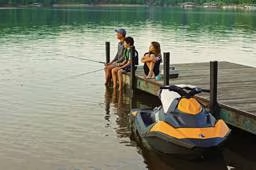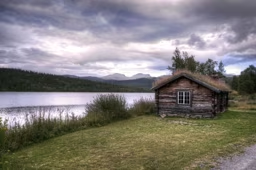Q: We have a cabin that was built in 1953 in an area that is mostly sand dunes on the northern shore of Lake Michigan. Our cabin has a “crawl-less” crawl space (less than 12 inches from sand to floor joists). The interior walls are the old traditional tongue-andgroove knotty pine boards. We have a lot of spiders that have made their home not only on the exterior but also the interior. We would like to find a way, without using harsh pesticides, to effectively reduce their numbers by making the cabin less attractive to them. I have considered replacing the pine tongue-and-groove interior boards with cedar boards. I’ve heard that cedar emits an aroma that insects avoid; so maybe this would help our situation, but would be fairly expensive. Any suggestions on the most effective way to tackle our problem? – Lonnie Cross, St. Ignace, Mich.
A: It’s commendable that you are searching out alternative methods to insecticides, and it may help you to know that insecticides don’t help with long-term control of spiders anyway. There are a few main, proven methods universities and county extension offices around the country advise for spider control.
And no, it’s not necessary for you to replace your pine boards with cedar. The things that work best are straightforward and very affordable. They just take time and dedication.
The first thing to do is get out a tube of silicone caulk and seal up cracks around windows, doors and the foundation of your cabin. You may also want to try a scent that a number of cabin owners swear by: lemon. Spraying lemon-scented Pledge around window and door openings will supposedly deter spiders because they hate the smell.
Also remember what spiders are attracted to: the bugs they feed on. Outdoor lighting in general makes a home more of a haven for spiders. If you can, avoid having outside lights on at night, and if you do need them, use yellow or sodium vapor light bulbs, as these will attract fewer night insects, and thus, spiders. Also, if at all possible, move outside lighting away from your doorways.
Another thing that will help is to clean up in and around your house. Vegetation around your cabin, firewood piles, and other debris by the cabin’s foundation are great places for spiders to hide and breed. Clean up what you can, and if you have a wood fireplace – thoroughly inspect the logs and brush them free of insects before bringing them in the house.
Keeping storage boxes and clothing off the floor will minimize places for spiders to hide, and so will regular (and thorough) sweeping, vacuuming and dusting. And to stop hundreds of baby spiders from adding to an already annoying spider population, make sure you hose spider webs and egg sacs off the outside of your cabin, while vacuuming up the webs and sacs you find inside. After you vacuum, don’t let the debris remain in the vacuum cleaner; make sure it gets destroyed.
If you’re a softie, and all this vacuuming and destroying sounds too harsh, you can buy a spider catcher at www.spidercatcher.net, which allows you to capture and release spiders.








